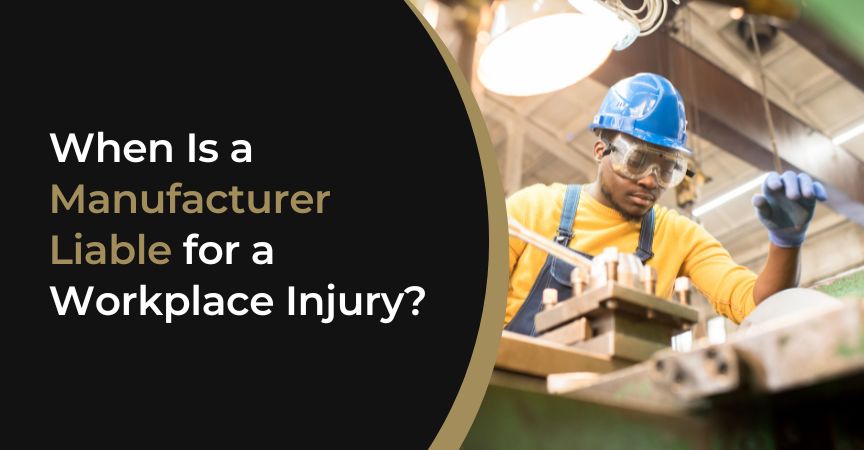The U.S. Bureau of Labor Statistics reports more than 5,000 fatal workplace injuries and 2.6 million non-fatal injuries each year. Many of the most devastating incidents occur in manufacturing plants and other industrial settings, where workers rely on heavy machinery and specialized tools to do their jobs.
When that equipment fails due to a defect, the results can be catastrophic, causing life-changing injuries or even death. In these cases, the manufacturer of the defective product may be held legally responsible.
When a Manufacturer Can Be Held Responsible
Workers in industries such as manufacturing, construction, oil and gas, and mining face daily risks from heavy machinery and equipment. A manufacturer (or, in some cases, a distributor or retailer) may be held legally responsible for injuries, a concept known as third-party liability, if equipment malfunctions because of:
- A design flaw that made the product unsafe from the start
- A manufacturing defect that caused the product to fail
- Inadequate warnings or instructions that failed to alert workers to dangers
These severe cases often involve:
- Crush injuries or amputations from heavy machinery
- Traumatic brain injuries caused by equipment malfunctions
- Severe burns or explosions caused by unsafe equipment or inadequate safety measures
- Wrongful death from catastrophic product failures
Proving Manufacturer Liability
Workplace injury claims can fall under third-party liability, allowing the injured worker to seek compensation from the manufacturer, distributor, or retailer rather than their employer.
To hold a manufacturer accountable, your attorney must establish four key elements:
- Duty of care – The manufacturer was responsible for producing a safe product.
- Breach of duty – A defect or failure made the product unreasonably dangerous.
- Causation – The defect directly caused the workplace injury.
- Damages – The worker suffered measurable harm, such as medical costs, lost wages, long-term disability, or death.
Some claims may also proceed under strict liability, which requires only proof that the product was defective and caused harm, regardless of whether the manufacturer was negligent.
Why These Cases Require Experienced Representation
Defective product claims involving severe workplace injuries are complex. They demand in-depth investigation, specialized knowledge, and the ability to challenge large corporations and their insurers. Because we are highly selective about the cases we take, we can provide each client with focused attention and dedicated representation.
At The Fitzgerald Law Firm, we have decades of experience handling catastrophic injury and wrongful death cases, giving our clients the expertise and advocacy these complex matters require. Our attorneys have secured record-setting verdicts in Wyoming, including the largest verdicts ever upheld on appeal by the Wyoming Supreme Court for injury and wrongful death.
If you or a loved one has been seriously injured by defective equipment in a manufacturing plant or other industrial setting, contact us today for a free, confidential consultation. We’ll explain your options and fight for the justice and compensation you deserve. We work on a contingency fee basis, so you pay nothing unless we recover compensation for your injuries.
